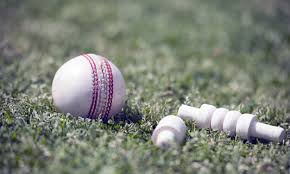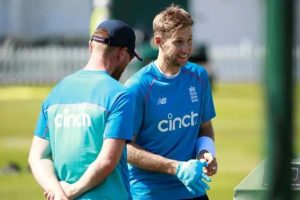Athletes found guilty of doping will be given a four-year ban from 2015, the International Association of Athletics Federations (IAAF) has announced.The length of bans was cut from four to two years in 1997 to bring it in line with other international sports bodies.
After a number of high-profile cases, the IAAF has opted to revert to four.
“The IAAF has an ethical obligation to the overwhelming majority of athletes and officials who believe in clean sport,” it said in a statement.
Meanwhile, Positive tests and negative vibes cast a shadow over world championships
It is a name guaranteed to provoke a shudder of recognition from John Terry, recalling the slip that gifted Manchester United the Champions League. But Moscow’s Luzhniki Stadium has also been giving world athletics the chills over recent months.
Poor ticket sales for the world championships, which start on Saturday, growing international outrage over new Russian laws that discriminate against gay people, and heightened public cynicism over a new spate of positive drug tests – including dozens from the host country – have combined to create a potential perfect storm for the organisers.
The International Association of Athletics Federations argues that Russia’s rich heritage in the sport – it lies second behind America in the all-time athletics medal table – and Moscow’s status as one of the world’s great capitals make it a worthy host city.
The event needs to succeed in order to maintain the momentum from the 2012 Games and keep sponsors and broadcasters happy. But events appear to be conspiring against it.
Some athletes, including Greg Rutherford and Dai Greene, who will defend his 400m hurdles title, have questioned whether the world championships should be in Moscow in light of the positive drug tests and allegations that Russia’s only Wada-accredited laboratory has manipulated results. More than 40 Russian athletes are currently serving bans.
“There are a lot of big names that won’t be there in Moscow, which is sad for the sport,” Greene said. “At the same time, there are a lot of reports on doping which detract from those great performances you do see. As a clean athlete, it’s frustrating to read that these things go on. Obviously, there is a big discussion whether we should be in Moscow, the country that’s holding it.”
Aside from the shadow of doping, just as in Daegu two years ago, the build-up to the 2013 worlds has been dominated by concerns over slow ticket sales. And just as in the South Korean city, tickets are being given away to help fill the gaps.
IAAF officials are hoping that there is both a late surge in ticket buyers – they say they have been assured that Muscovites do not like to buy in advance – and that those who have been given free tickets actually turn up.
The former pole vaulter Sergey Bubka, the Ukrainian IAAF vice-president who is chair of the co-ordination commission, admitted there had been a last-minute scramble to ensure the stadium, which has had its capacity reduced to 50,000 for the duration of the championships, would not look embarrassingly empty. He revealed Lord Coe, his fellow IAAF vice-president, who won Olympic gold and silver in the Luzhniki Stadium in 1980, had been called on to use his experience of filling stadiums during the London Games to help Moscow.
“We spoke with the mayor of the city and with President Putin about this issue. In the city they have a special programme to try and engage a lot of kids and students,” said Bubka.
Officially, the IAAF says that 85% of sessions have been sold and it remains confident that all evening sessions will sell out following an unprecedented advertising blitz across the city.
The recent spate of doping cases will not have helped and have punctured any lingering feelgood factor from London 2012. Many within the sport argue that a slew of positive tests, including more than 40 in Turkey alone, plus big-name sprinters including the American Tyson Gay and the Jamaican trio of Veronica Campbell-Brown, Asafa Powell and Sherone Simpson, at least show that the cheats are now being caught. But such is their volume, they are also likely to increase public cynicism.
The 100m in Moscow, pitting Gay against Usain Bolt, had been eagerly anticipated. Now, not only are Gay and Powell missing but the reigning champion, Yohan Blake, is missing the event through injury.
Away from the track, an escalating row over new anti-gay laws introduced by Putin and a rising tide of homophobia within the country also threatens to overshadow the sporting action. There have been calls for Russia to be stripped of the Sochi 2014 Winter Olympics, into which it has invested so much money and nationalistic pride, over the laws. The World Athletics Championships was supposed to be a triumphant precursor to a five-year spell in which it will host the Winter Olympics and the World Cup, but risk being marked by protests that will escalate as those other major events near.
Like the International Olympic Committee, the IAAF essentially argues that sport and politics should not mix, as long as its athletes and competition is not affected. The IAAF deputy general secretary, Nick Davies, said it would be good for the Russian government to see people with “alternative lifestyles, and this may serve as an impetus for them to reconsider their views instead of just living in an isolated society”.
Davies said that as an international organisation “we have to respect the laws of the land”, whether it likes the laws or not. “The IAAF cannot control or modify this,” he added. He insisted that the IAAF’s charter is clearly opposed to any discrimination against sex, religion or gender. “It is simply not a problem in our sport.”
The IAAF will be desperately hoping the coming days are marked by the stories generated on the track rather than in the laboratories or on the streets. And not for the first time, but perhaps more than ever, the sport needs Bolt to pull out a stunning performance to distract from troubles elsewhere. – BBC Sport




